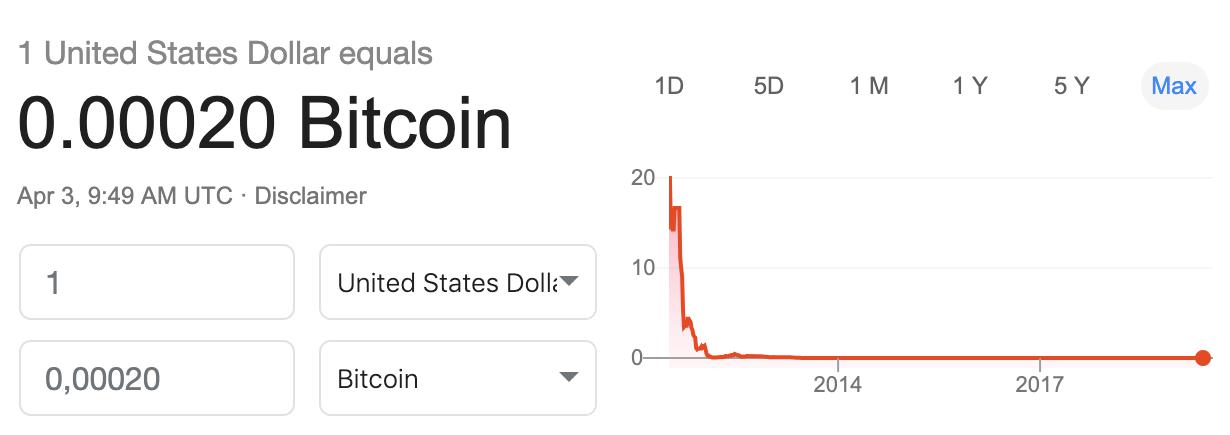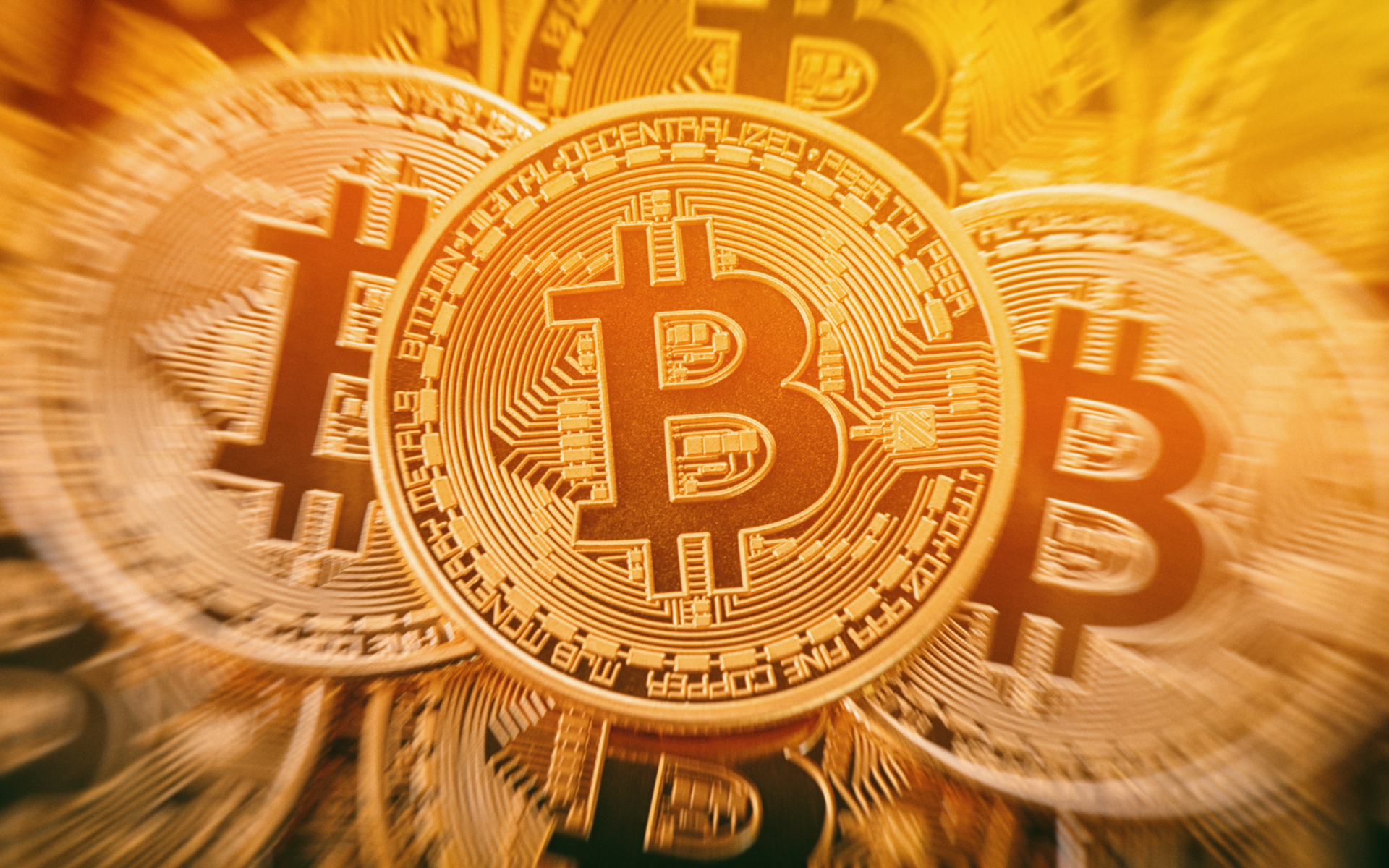Over a decade after Bitcoin was launched, the world’s first non-trust based money is breaking out of yet another bear market cycle. Let’s look at a few reasons why it may be a good idea to buy even a small fraction of a bitcoin before the FOMO (fear of missing out) kicks in.
Bitcoin is Pretty Unique
Ten years ago, anonymous Bitcoin creator Satoshi Nakamoto explained why it was unlike other digital currencies that came before it.
What made Bitcoin truly revolutionary is that it didn’t rely on trust. Additionally, its decentralized software made it impervious to attacks — especially if the network grew large enough.

The mysterious creator predicted that if people start to value Bitcoin’s digital scarcity, usefulness, and trustlessness, then the price would ultimately shoot through the roof.
“You know, I think there were a lot more people interested in the ’90s, but after more than a decade of failed Trusted Third Party based systems (Digicash, etc), they see it as a lost cause,” explained Nakamoto in an email a week after Bitcoin was launched.
I hope they can make the distinction that this is the first time I know of that we’re trying a non-trust-based system. Yea, that was the primary feature that caught my eye. The real trick will be to get people to actually value the BitCoins so that they become currency.
Today, Bitcoin touts an unprecedented 99.98 percent uptime. Meanwhile, it keeps mining a new block about every ten minutes without relying on trusted third-party systems.
In fact, the least predictable thing about bitcoin today is the price. With a supply set in stone at 21 million, price volatility is not suprising since the creation of new bitcoin is predictable and doesn’t follow supply and demand.
This non double-spendable, digital unit of value is unlike any other ‘asset’ that has ever existed.
Bitcoin Survived and Caught On
Today, it is stronger than ever with exponential gains in computing power (security) and usage.
In fact, the most unlikely thing was obtaining a value greater than zero. It’s biggest milestone was arguably hitting one cent and then parity with the dollar within two years. This was the most vulnerable period for Bitcoin where it could have actually ‘died.’
Today, millions of people around the world are speculating on the price of bitcoin as it has shot up from zero to as high as $20,000 USD in recent years.
At the same time, it is being used for all kinds of economic activity averaging over 350,000 transactions daily. Thousands of merchants and some big name companies accept BTC today as financial institutions are also starting to dip their toes.
“I would be surprised if 10 years from now we’re not using electronic currency in some way, now that we know a way to do it that won’t inevitably get dumbed down when the trusted third party gets cold feet,” Nakamoto continues.
Applications are also being built on top of the Bitcoin network such as the Lightning Network. Bringing instant and near-zero fee payments, it’s already seeing uptake and some innovative use-cases online.
“Once it gets bootstrapped, there are so many applications if you could effortlessly pay a few cents to a website as easily as dropping coins in a vending machine,” Nakamoto adds.

Lightning Spin, is just one example of the applications Satoshi predicted. Simpy scan an invoice with a smartphone to instantly send a fraction of a cent. The wheel will spin to provide an experience that certainly does feel like “dropping coins” into the computer screen.
Digital Scarcity. Limitless Potential.
Bitcoin is digitally scarce unlike the dollar and other fiat currencies. Its supply is limited to 21 million, of which 17.6 million have already been mined.
Therefore, its price could grow by orders of magnitude considering that only a few million, out of nearly 8 billion people, hold bitcoin today. In other words, it’s still early, and the market cap could grow into the trillions if Bitcoin continues to steer the course.
The ‘permanent QE‘ by the Federal Reserve should only accelerate the demise of the dollar against bitcoin.

Bitcoin’s Schelling Point
With each day, Bitcoin’s network effect and Schelling Point also become more pronounced and apparent. This can already be witnessed as altcoins are at the mercy of BTC price moves. It’s a clear sign that Bitcoin is becoming the de facto ‘metric system’ for cryptocurrencies.
Bitcoin as Schelling point, "solution that people use in the absence of communication, because it seems natural, special, or relevant." https://t.co/XjCZP6xoOd
— Tuur Demeester (@TuurDemeester) July 24, 2017
With time, it will become natural for people to use Bitcoin. This includes everyday transactions, storing wealth, and more — just like email and messaging apps are now second nature today.
Trusting banks, governments and other third-parties to store your (depreciating fiat) money and private information will seem archaic. The lightbulb will go off once people realize that Bitcoin is an open, voluntary money-like protocol that doesn’t require trusting banks to not put profits over customers.
Thus, it is no surprise why the legacy financial system is so anti-Bitcoin.
Satoshi Nakamoto notes:
It might make sense just to get some in case it catches on. If enough people think the same way, that becomes a self fulfilling prophecy.
Fortunately, Bitcoin has already cleared its most vulnerable period and miraculously “caught on.” In fact, we may already be past the tipping point. Therefore, it may be a good idea to buy even a fraction of a bitcoin, just in case.
Is buying even a fraction of a bitcoin a good idea for the long-term? Share your thoughts below!
Images via Shutterstock








